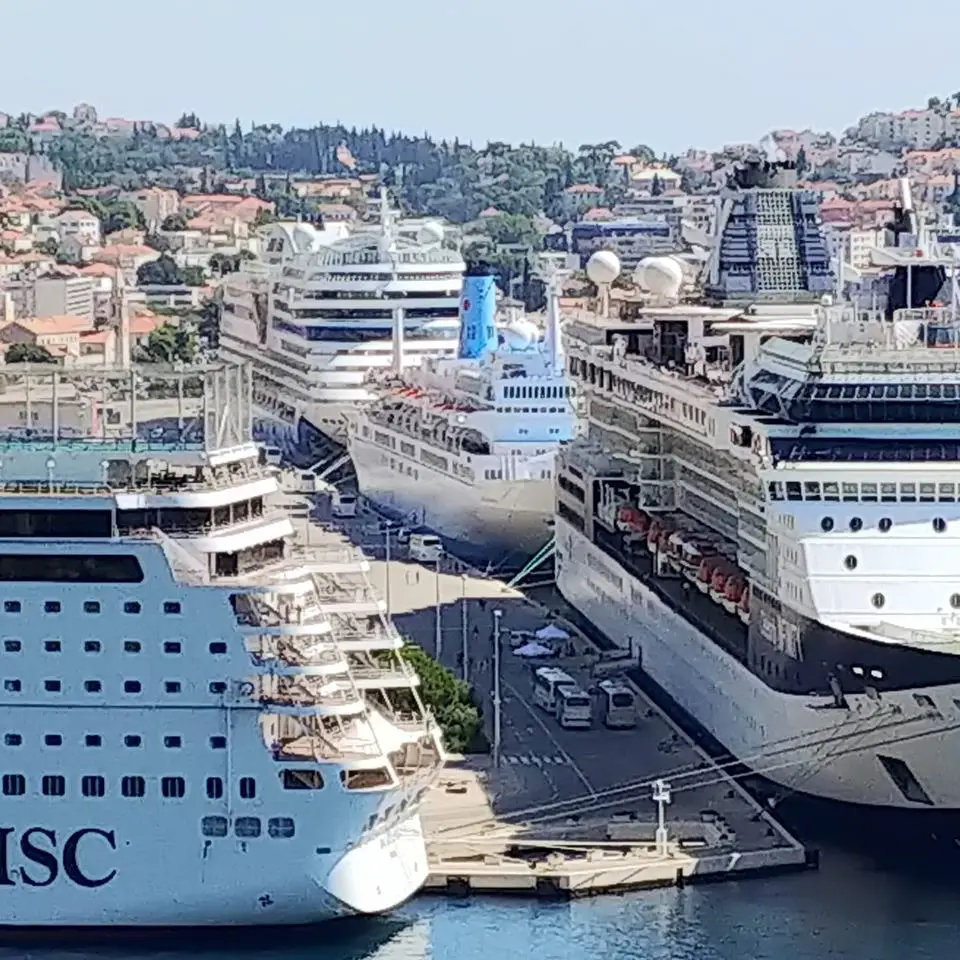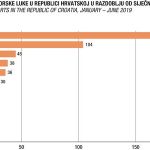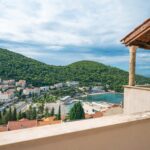August 23, 2019 – Scenes from Gruž port in Dubrovnik on Thursday suggest anything but an improvement in buckling down on the city’s cruise ship tourism.
On July 8, 2019, TCN published the results of the “Transportation and Environment” Association, which, along with the support of numerous similar environmental foundations, including the European Commission (EC), conducted extensive research on air pollution in European destinations in ports which accept cruise ships in 2017. The study revealed alarming stats about the pollution levels in Croatia’s top destination – Dubrrovnik.
Namely, 27,173 vehicles were registered in Dubrovnik in 2017. During that time, in the port of Gruž, forty such massive vessels sailed in while taking round trips, spending a total of 2,791 hours moored. Thus, 2,523 kilograms of contaminated particles were discharged into Dubrovnik’s air.
During that same time, the aforementioned 27,173 vehicles registered in the Dubrovnik area released 11,561 kilograms of exhaust gases into the air. Translated into basic percentages: 20.1 percent of the air pollution in Dubrovnik comes directly from cruise ships.
When considering the release of harmful compounds such as sulfur and nitrogen oxides, the data for Dubrovnik is as follows: During those 2,791 hours of cruise ships being moored in Gruž, cruise ships released a massive 140,259 kilograms of nitrogen oxide into the air, while 27,173 registered vehicles during that same year released 100,174 kilograms of the same harmful compound.
Furthermore, during their stay, cruise ships released 6,344 kilograms of sulfur oxide into Dubrovnik’s air, and passenger cars released 331 kilograms of the same compound during that time.
Exactly one month later, on August 8, 2019, TCN reported the following cruise ship statistics according to the Croatian Bureau of Statistics:
In the first six months of 2019, 272 journeys of foreign vessels on cruise were realised in Croatia.
In the period from January to June 2019, there were 54 foreign vessels on cruise that arrived in Croatian seaports, which realised 272 journeys. There were 409 thousand passengers on board who stayed for 554 days in Croatia.
The highest number of cruises was realised by vessels under the flags of Malta (72 cruises) and Italy (45 cruises), while the highest number of passengers on board the arrived vessels were under the flags of Italy (108 thousand passengers) and Panama (100 thousand passengers).
Out of a total of 272 journeys of foreign vessels on cruise, the majority was realised in the County of Dubrovnik-Neretva (60.3%) and the County of Split-Dalmatia (25.3%), which makes up the total of 85.6%. The remaining 14.4% of journeys were realised in the following counties: Zadar (5.9%), Istria (4.8%), Primorje-Gorski kotar (2.6%) and Šibenik-Knin (1.1%).
The most visited seaport was the seaport of Dubrovnik, followed by the seaports of Split and Zadar
The majority of visits of foreign vessels on cruise were realised in the seaport of Dubrovnik (195 visits), followed by the seaports of Split (104 visits) and Zadar (45 visits).
In the period from January to June 2019, the number of journeys of foreign vessels on cruise increased by 10.6% and the total number of sojourns by 6.1%, as compared to the same period of 2018. In the aforementioned period of 2019, the number of passengers on board increased by 14.8%, as compared to the same period of 2018.
Just yesterday, on August 22, 2019, Dalmacija Danas published a photo that perfectly presents the shocking reality of cruise ship tourism in Dubrovnik today.
You can have a look for yourself below.

Photo by Boris Bašić
”Contracts with cruise companies are signed for next year, so that throughout the whole week, from Monday to Sunday, we will have a maximum of two cruisers a day. Sometimes there will be only one, sometimes two will arrive at one or one in the morning and the other in the afternoon. We aspired to that, and now we have achieved it,” the mayor of Dubrovnik, Mato Franković, said last year.
However, Thursday’s view of Gruž reveals an entirely different reality; one where there were twice as many cruisers as promised at the port.
To read more about travel in Croatia, follow TCN’s dedicated page.









